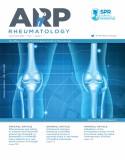Portuguese translation, cross-cultural adaptation and reliability of Young Spine Questionnaire
Authors
Jorge Teixeira; Raul Oliveira; João Gomes-Fonseca; Luis Ferreira; Henrik Lauridsen; Armando Raimundo;
Objective: To translate and perform the cross-cultural adaptation of the Young Spine Questionnaire (YSQ) into Portuguese, and to assess its reliability.
Method: Translation and cross-cultural adaptations were conducted according to accepted international standards. A preliminary version underwent pilot-testing with 32 children (11-14 years), equally divided by gender and age. Children were asked to rate each question in terms of clarity and comprehensibility, and to provide general feedback regarding the questionnaire. The final version of the questionnaire was approved by a committee consisting of experts from various fields. Test-retest reliability was assessed on 58 children using Cohen’s and Fleiss’ Kappa.
Results: Translation and cross-cultural adaptation of the YSQ only resulted in minor changes and the children rated all questions as “clear and understandable” in the pilot test, without gender or age differences being detected. Test-retest data was collected with a mean interval of 13 days. Reliability scores ranged from 0.56-0.97, equivalent to “moderate” to “almost perfect” agreement. Most questions (84%) had “substantial” or “almost perfect” agreement.
Conclusion: The translation and cross-cultural adaptation of YSQ into Portuguese was successfully performed. This questionnaire was also shown to be reliable, supporting its future use in research projects.
Jorge Teixeira
Research Center in Sports Sciences, Health Sciences and Human Development (CIDESD), University of Maia, ISMAI, Maia, Portugal.
Raul Oliveira
CIPER Neuromuscular Research Lab, Faculty of Human Kinetics, University of Lisbon, Lisbon, Portugal
João Gomes-Fonseca
Life and Health Sciences Research Institute (ICVS), School of Medicine, University of Minho, Braga, Portugal.
Luis Ferreira
Higher Institute of Educational Sciences of Douro, Penafiel, Portugal.
Henrik Lauridsen
Department of Sports Science and Clinical Biomechanics, University of Southern Denmark, Odense, Denmark.
Armando Raimundo
Departamento de Desporto e Saúde, Escola de Saúde e Desenvolvimento Humano, Universidade de Évora, Portugal
Research Center in Sports Sciences, Health Sciences and Human Development (CIDESD), University of Maia, ISMAI, Maia, Portugal.
Raul Oliveira
CIPER Neuromuscular Research Lab, Faculty of Human Kinetics, University of Lisbon, Lisbon, Portugal
João Gomes-Fonseca
Life and Health Sciences Research Institute (ICVS), School of Medicine, University of Minho, Braga, Portugal.
Luis Ferreira
Higher Institute of Educational Sciences of Douro, Penafiel, Portugal.
Henrik Lauridsen
Department of Sports Science and Clinical Biomechanics, University of Southern Denmark, Odense, Denmark.
Armando Raimundo
Departamento de Desporto e Saúde, Escola de Saúde e Desenvolvimento Humano, Universidade de Évora, Portugal





